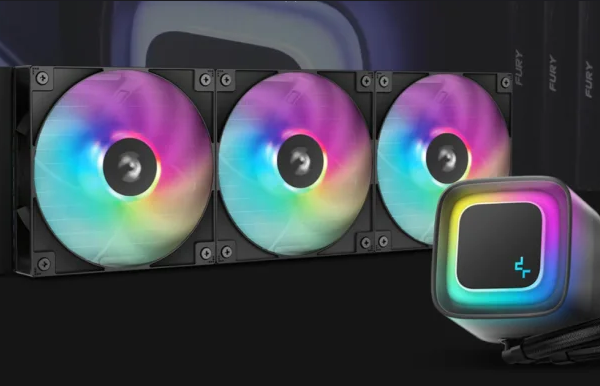The tech community gathered in San Francisco recently for AMD’s highly anticipated Advancing AI 2024 event, where AMD unveiled its latest EPYC “Turin” processors. AMD’s fifth-gen EPYC 9005 series, powered by the new Zen 5 architecture, aims to redefine data center performance across enterprise, AI, and cloud computing environments. Let’s dive into what makes the EPYC 9005 series stand out and how it stacks up against the competition.
A Unified Processor Family with New Levels of Performance
AMD has consolidated its scale-up Zen 5 cores with its scale-out Zen 5c cores into a single, cohesive product line under the EPYC 9005 Turin series. This unification delivers optimized options for both standard and high-density applications while simplifying deployment for data centers. AMD made bold claims at the event, specifically positioning its processors against Intel’s Xeon series, and the numbers are impressive.
Key Performance Highlights
- Industry-Leading Multicore Power: The top-of-the-line 192-core EPYC 9965 is a powerhouse, reportedly outperforming Intel’s Platinum 8952+ with up to 2.7x faster speeds. AMD’s own benchmarks show incredible results:
- Video Transcoding: 4x faster
- High-Performance Computing (HPC): 3.9x faster
- Virtualization: 1.6x higher performance per core
- New High-Frequency SKUs for AI: AMD introduced the EPYC 9575F model, reaching speeds of 5 GHz. Optimized for AI workloads, this model offers up to 28% faster performance than Zen 4 models, making it a standout choice for demanding GPU-accelerated tasks.
- IPC and AVX-512 Gains: The Zen 5 architecture delivers a 17% increase in instructions per clock (IPC). Additionally, AMD has implemented full 512-bit AVX-512 support, which enhances data handling capabilities, especially for AI and HPC workloads. To improve efficiency, there’s a new “double-pumped” AVX-512 mode that splits 512-bit instructions into two 256-bit sets, balancing performance and power consumption.
Broad Compatibility and Scalability
AMD’s fifth-gen EPYC processors leverage AMD’s SP5 socket, allowing most models (including the 192-core version) to fit seamlessly into existing server platforms. This ensures easy upgrades from previous generations, such as Genoa, with minimal hardware changes—saving customers time and costs. In terms of thermal design power (TDP), the new models range from 155W to 500W, with some models optimized for dense water-cooling setups.
Specifications at a Glance
- Core and Thread Range: Models from 8 cores up to 192 cores with varying levels of power to suit all needs.
- Memory and PCIe: Each CPU supports 12 channels of DDR5 memory (up to 12TB per server) and up to 160 PCIe 5.0 lanes in dual-socket configurations.
- Dense Zen 5c Cores: AMD has also launched high-density models for specialized applications, such as those with 96, 128, 144, and 160 cores.
Breaking Down the Benchmarks: AMD vs. Intel
Benchmarks are where the EPYC Turin series truly shines. AMD shared an array of test results to back up its claims, although third-party testing will be essential to confirm these findings. Here’s a breakdown of AMD’s standout numbers:
- Record-breaking SPEC CPU 2017 Score: AMD’s EPYC 9965 achieved a 2.7x higher score than Intel’s Xeon in integer throughput. This impressive feat could mean huge benefits for companies looking to reduce software licensing costs, as AMD notes a 60% boost in performance at the same software costs.
- General Compute and Business Apps: AMD claims significant advantages over Intel’s fifth-gen Xeon processors, including:
- 4x faster video transcoding
- 3.9x performance boost in HPC applications
- 2.3x and 3x boosts in database and rendering tasks, respectively.
- AI Workload Dominance: AMD showcased benchmarks for a range of AI tasks, where the EPYC 9965 achieved up to 3.8x faster inference performance. While Intel’s AMX technology offers advantages in fully saturated AI scenarios, AMD asserts its models perform better in mixed workloads that combine AI and general compute tasks.
Advanced Memory and I/O Support for Modern Workloads
The fifth-gen EPYC series supports DDR5-6400 memory, offering 12 channels and a maximum capacity of 12TB per server. This is ideal for data-intensive applications, while the support for 128 PCIe 5.0 lanes in single-socket configurations and 160 PCIe lanes in dual-socket setups provides exceptional flexibility for connectivity and expansion.
Optimized for Today’s Data Centers : Practical Innovations
AMD has designed its EPYC 9005 series with compatibility and upgradability in mind, an approach that reduces friction for OEMs and customers alike. For instance, AMD’s use of the SP5 socket for two generations enables faster time-to-market and straightforward hardware upgrades, a distinct advantage over Intel’s platform approach.
The Zen 5c and Zen 5 CCDs (Core Compute Dies) utilize TSMC’s 3nm and 4nm nodes, respectively. This transition to smaller nodes increases compute density, making AMD’s EPYC processors a solid choice for environments prioritizing efficiency, such as cloud data centers. Moreover, the inclusion of new dense water-cooling solutions aligns well with the higher TDP models, offering data centers practical cooling options without complicated installations.
Final Thoughts : AMD’s Bold Claims and What Comes Next
AMD’s new EPYC 9005 series has set ambitious performance benchmarks, particularly against Intel’s Xeon lineup. From multicore processing power to AI workload efficiency, AMD appears poised to capture attention in the data center market. However, as always, third-party testing will be the true test of these claims. AMD is already in the process of independent benchmarking to provide a comprehensive view of Turin’s performance across real-world scenarios.
For now, AMD’s fifth-gen EPYC series presents an exciting opportunity for data centers to optimize workloads in enterprise, AI, and cloud computing. Whether these processors truly deliver on their high expectations remains to be seen, but they’re undoubtedly a bold move forward for AMD in the ongoing battle for data center dominance.
AMD’s latest EPYC processors are changing the game for enterprise and AI computing, but that doesn’t mean you need to overhaul your setup just yet. The right hardware can optimize your tasks today while staying prepared for tomorrow’s advances. If you’re considering an upgrade, let our experts guide you to the best fit. Visit us in Hyderabad, Gurgaon, Bangalore, or Mumbai, or explore our offerings on our website. We’ve been trusted to build high-performance PCs across India since 2015.






